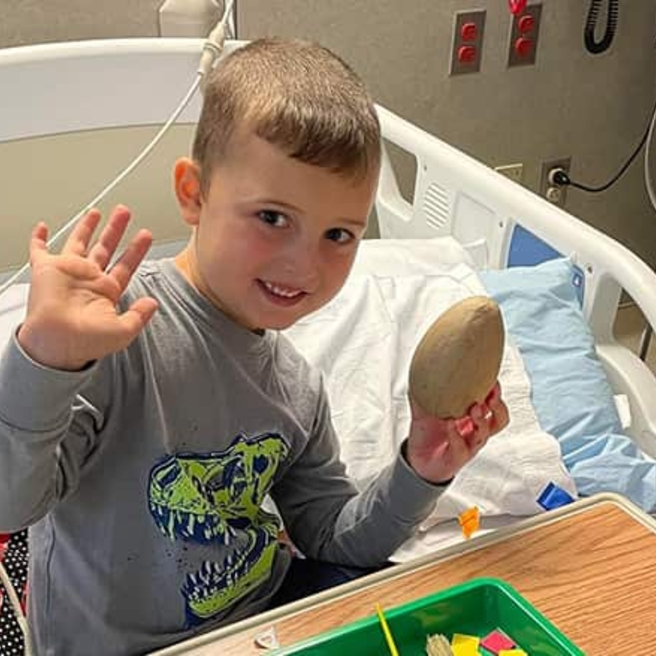Immune Dysregulation Program

For most children, the immune system helps fight infections. But in children with immune dysregulation disorders, the immune system malfunctions instead, causing inflammation and organ damage, while also making children vulnerable to infections. Immune dysregulation disorders are rare, complex and difficult to diagnose. However, if children are diagnosed quickly and accurately, treatment – and, in some cases, a cure – is possible.
At Children's Hospital of Philadelphia (CHOP), the Immune Dysregulation Program offers patients multidisciplinary expertise, cutting-edge diagnostic and genetic testing, and collaborative and innovative research into the genes and causes of immune dysregulation syndromes. If your child is suffering and specialists haven't been able to tell you why, we can find answers and customize treatments to give your child the best possible quality of life.
How we serve you
Children suspected of having an immune dysregulation syndrome will need the specialized diagnostic tests and advanced treatments available at the Immune Dysregulation Clinic. Patients will also benefit from the many related clinical programs and services.
Conditions we treat
Our program specializes in the evaluation and treatment of children with a wide range of immune dysregulation disorders, including those listed below.
-
Autoimmune lymphoproliferative syndrome (ALPS) -
Autoinflammatory diseases -
Castleman disease -
Common variable immunodeficiency (CVID) - CTLA4 deficiency
-
Evans syndrome -
Hemophagocytic lymphohistiocytosis (HLH) - LRBA deficiency
- XIAP deficiency
- Unidentifiable periodic fever syndromes

Why choose CHOP for immune dysregulation disorders
If your child is experiencing unexplained symptoms that affect multiple organs and doctors can't tell you why, we can help. Our program offers coordinated multidisciplinary care, state-of-the-art diagnostic and genetic tests, and personalized treatments.

Meet your team
There’s no other pediatric hospital that combines the expertise of so many subspecialists to aid in the evaluation and treatment of children with immune dysregulation disorders. These providers collaborate to care and support each patient.

Our research
The biggest hurdle in treating immune dysregulation syndromes is identifying alternative therapies for children who don’t respond to current treatments. We are actively studying the function of immune cells, genetic causes for these disorders, and testing novel treatments.

Resources for professionals
Everything you need to support your patient’s health, created and updated by our CHOP community of experts.
Your donation changes lives
Philanthropic donations fuel breakthrough discoveries, innovative care and pioneering treatments at CHOP’s Division of Allergy and Immunology.

